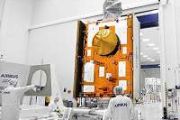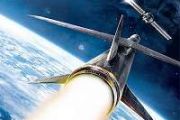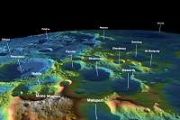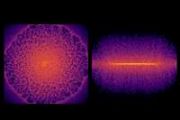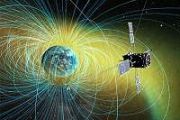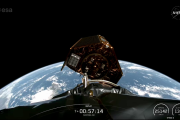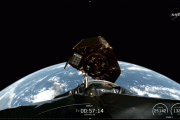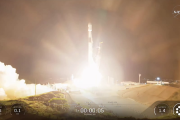
Copernical Team
Maritime Cleantech company selects Spire Global to provide ship-tracking data
 Spire Global, Inc. (NYSE: SPIR) was selected by Navidium, an innovative software company active in the maritime industry, to provide real-time automatic identification system (AIS) vessel-tracking data.
Navidium will integrate the data into its Voyage Optimization and Environmental Compliance products to help users track vessel position along a route, reoptimize routes based on various con
Spire Global, Inc. (NYSE: SPIR) was selected by Navidium, an innovative software company active in the maritime industry, to provide real-time automatic identification system (AIS) vessel-tracking data.
Navidium will integrate the data into its Voyage Optimization and Environmental Compliance products to help users track vessel position along a route, reoptimize routes based on various con Flying frying in microgravity
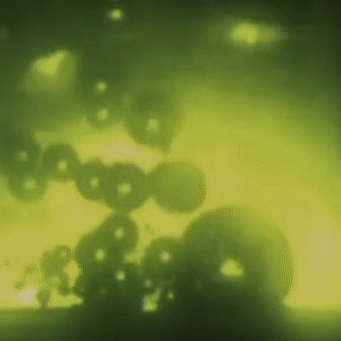
The food we eat determines how we feel, and nothing beats a good fry-up, although in moderation of course. As we prepare for missions to the Moon and on to Mars, astronauts will be happy to hear from researchers that one staple comfort food is not out of reach, even in space: fries.
Week in images: 29 May - 02 June 2023

Week in images: 29 May - 02 June 2023
Discover our week through the lens
Soaring rhetoric: NASA mission will carry Poet Laureate Ada Limón's words to Jupiter
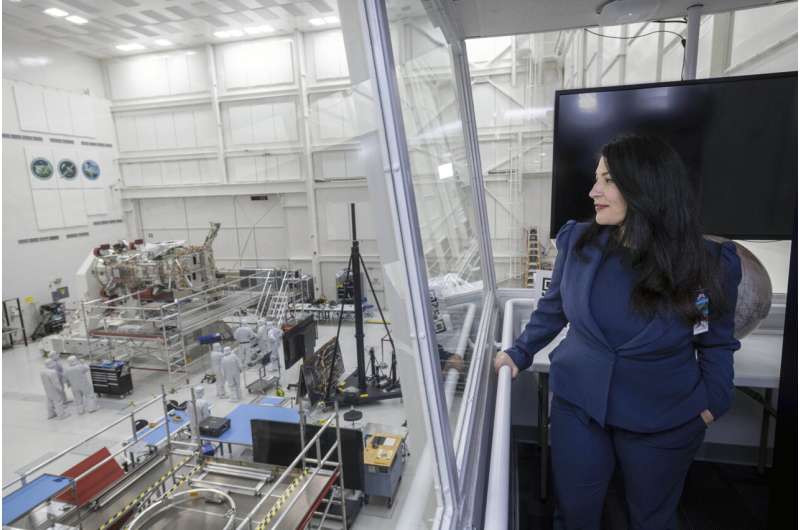
Boeing's astronaut capsule faces more launch delays after latest problems

Earth from Space: Anchorage, Alaska
 Image:
From the Chugach Mountains on the right to the Cook Inlet on the left, this Copernicus Sentinel-2 image features the varied landscape surrounding Anchorage, the largest and most populous city in the state of Alaska in the United States.
Image:
From the Chugach Mountains on the right to the Cook Inlet on the left, this Copernicus Sentinel-2 image features the varied landscape surrounding Anchorage, the largest and most populous city in the state of Alaska in the United States. NASA looks back at 50 years of gamma-ray burst science
 Fifty years ago, on June 1, 1973, astronomers around the world were introduced to a powerful and perplexing new phenomenon called GRBs (gamma-ray bursts). Today sensors on orbiting satellites like NASA's Swift and Fermi missions detect a GRB somewhere in the sky about once a day on average. Astronomers think the bursts arise from catastrophic occurrences involving stars in distant galaxies, even
Fifty years ago, on June 1, 1973, astronomers around the world were introduced to a powerful and perplexing new phenomenon called GRBs (gamma-ray bursts). Today sensors on orbiting satellites like NASA's Swift and Fermi missions detect a GRB somewhere in the sky about once a day on average. Astronomers think the bursts arise from catastrophic occurrences involving stars in distant galaxies, even Eventually everything will evaporate, not only black holes
 New theoretical research by Michael Wondrak, Walter van Suijlekom and Heino Falcke of Radboud University has shown that Stephen Hawking was right about black holes, although not completely.
Due to Hawking radiation, black holes will eventually evaporate, but the event horizon is not as crucial as had been believed. Gravity and the curvature of spacetime cause this radiation too. This means
New theoretical research by Michael Wondrak, Walter van Suijlekom and Heino Falcke of Radboud University has shown that Stephen Hawking was right about black holes, although not completely.
Due to Hawking radiation, black holes will eventually evaporate, but the event horizon is not as crucial as had been believed. Gravity and the curvature of spacetime cause this radiation too. This means Astrophysicists confirm the faintest galaxy ever seen in the early universe
 An international research team led by UCLA astrophysicists has confirmed the existence of the faintest galaxy ever seen in the early universe. The galaxy, called JD1, is one of the most distant identified to date, and it is typical of the kinds of galaxies that burned through the fog of hydrogen atoms left over from the Big Bang, letting light shine through the universe and shaping it into what
An international research team led by UCLA astrophysicists has confirmed the existence of the faintest galaxy ever seen in the early universe. The galaxy, called JD1, is one of the most distant identified to date, and it is typical of the kinds of galaxies that burned through the fog of hydrogen atoms left over from the Big Bang, letting light shine through the universe and shaping it into what Colorful Kuiper Belt puzzle solved by UH researchers
 The Kuiper Belt is a massive disk of icy bodies, including Pluto, that is located just outside of Neptune's orbit in our solar system. Objects observed in the Kuiper Belt exhibit a unique color range than any other solar system population ranging from white to dark reddish. While the source of this diversity in colors is unknown, scientists have speculated that it is likely the result of the pro
The Kuiper Belt is a massive disk of icy bodies, including Pluto, that is located just outside of Neptune's orbit in our solar system. Objects observed in the Kuiper Belt exhibit a unique color range than any other solar system population ranging from white to dark reddish. While the source of this diversity in colors is unknown, scientists have speculated that it is likely the result of the pro 

